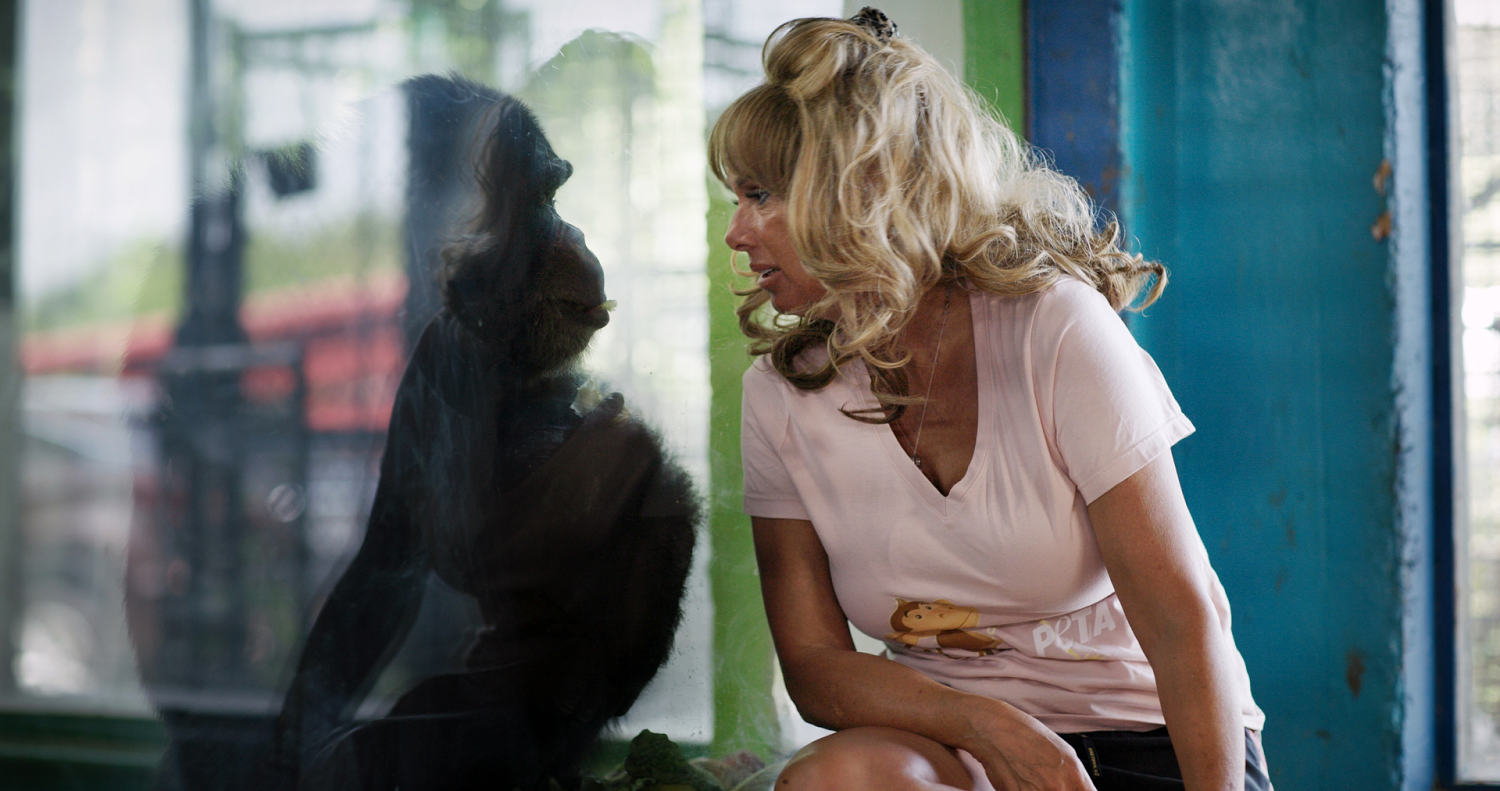
The popular new HBO Max docuseries “Chimp Crazy” airs its season finale Sunday night. From the creator of Netflix’s “Tiger King,” this four-part project has over the past month slowly revealed to viewers a grim reality: In private homes across the United States, chimpanzees, monkeys and other primates are being kept as pets, forced to wear diapers and children’s clothing. Treated as human babies, they’re prevented from expressing their natural, wild behaviors. As the series highlights, it’s a serious problem that has been hiding in plain sight.
“Chimp Crazy” focuses on chimpanzees but other species such as macaques, capuchins, lemurs and marmosets also suffer and languish in people’s bedrooms, dens, basements and garages. Prior to these unsuitable homes, these animals are typically kept in largely barren cages at exotic animal dealers. Breeding operations pull newborn animals from their mothers to sell in the pet trade. They are dressed up, leashed and trundled out for shopping trips and family gatherings.
“Chimp Crazy” focuses on chimpanzees but other species such as macaques, capuchins, lemurs and marmosets also suffer and languish in people’s bedrooms, dens, basements and garages.
The owners profiled in the series tell us with sincerity that they love their animals. But what does that “love” do to the creatures in question? Chimps are among our closest biological cousins but they are not like us nor are they suited to be our pets. These are wild animals being kept far from the natural environments and ecosystems that support their fundamental psychological and physical needs. In treating them as human babies, we demean and distort who they are.
Importantly, animals born and raised in situations like the ones portrayed in “Chimp Crazy” cannot be returned to the wild because primates sold in the pet trade are typically hand-raised and deprived of learned survival skills. If released, they could also endanger wild populations by spreading diseases acquired in captivity.
There are some suitable places for them, like the Humane Society of the United States’ Black Beauty Ranch, where some of the almost 600 sanctuary residents are wild animals once kept as pets. Such accredited sanctuaries provide proper enrichment, expansive habitats and critical social contact — but they shouldn’t have to exist. Many animals at Black Beauty still bear the scars of their earlier traumas. Among the primates once kept as pets, we see anxious behaviors consistent with animals deprived of essential coping and resilience skills they should have learned from their mothers. Jackie, a nervous Capuchin, grasps and holds her abdomen when she is stressed or overexcited. Cali, a marmoset, has bouts of unpredictable aggression.
The human “love” they were subjected to haunts them still.
“Tiger King” brought the roadside zoo industry into wider view, showing how hucksters use animals as business commodities with little to no regard for their health and well-being. Prior to the show, most Americans were likely unaware of what goes on at these deplorable operations. Some may have even visited them, intrigued by the idea of “cuddling” with a tiger cub. And despite its more salacious lens, “Tiger King” ultimately did more than just entertain people stuck at home during the pandemic; in the end, it created momentum for reform efforts and sparked a renewed push to end captive wildlife entertainment.
Like “Tiger King” before it, “Chimp Crazy” gives us an opportunity to reflect. We may empathize with those who think loving nonhuman primates justifies keeping them as pets. But we should not follow their example. When the form of “love” causes harm to animals every day of their lives, society should not turn a blind eye.
In addition to the cruelty of forcing animals to live in ways that compromise their nature, there is also a serious public safety risk. “Chimp Crazy” focuses on chimpanzees, but other primate species flood the exotic pet trade, including baboons, capuchins, lemurs, macaques and marmosets. Wild animals, including primates, can transmit bacterial, viral, parasitic and fungal infections to humans. Close contact can lead to serious injury. According to data compiled by the Humane Society of the United States from news reports, more than 300 dangerous incidents (primarily attacks and escapes) involving pet primates have occurred since 1990. Those incidents have occurred in 41 states, resulting in injuries to 153 adults and 78 children, and the deaths of more than three dozen primates.
In addition to the human injuries that have resulted from contact with chimpanzees alone, incidents involving other nonhuman primates have left people with severed fingers, ears and nostrils, bone-deep bites and severe lacerations.
One particularly horrible incident in 2009 inspired federal legislation to prohibit private ownership of nonhuman primates. A woman named Charla Nash had her hands and face mostly destroyed by her friend’s pet chimpanzee, Travis. Nash survived, barely, but the resulting legislation, designed to protect both animals and people, has not yet passed in Congress. Ideally “Chimp Crazy” will do for primates what “Tiger King” did for big cats when it added momentum to the push for the Big Cat Public Safety Act, finally enacted by Congress in 2023. Connecticut Sen. Richard Blumenthal, who first introduced the Captive Primate Safety Act in 2009, certainly hopes so.
But the fact that a woman’s profound and very public disfigurement has not yet spurred Congress into federal action highlights the challenges of this fight. We know these wild animals live all across America as pets. But due to a patchwork of state laws — some that ban many or all pet primates and others with either ineffective permitting systems or no regulations at all — it is impossible to estimate exactly how many currently live in this country or where they are located.
And we must not forget these often-hidden animals when the series ends.

Leave a Reply